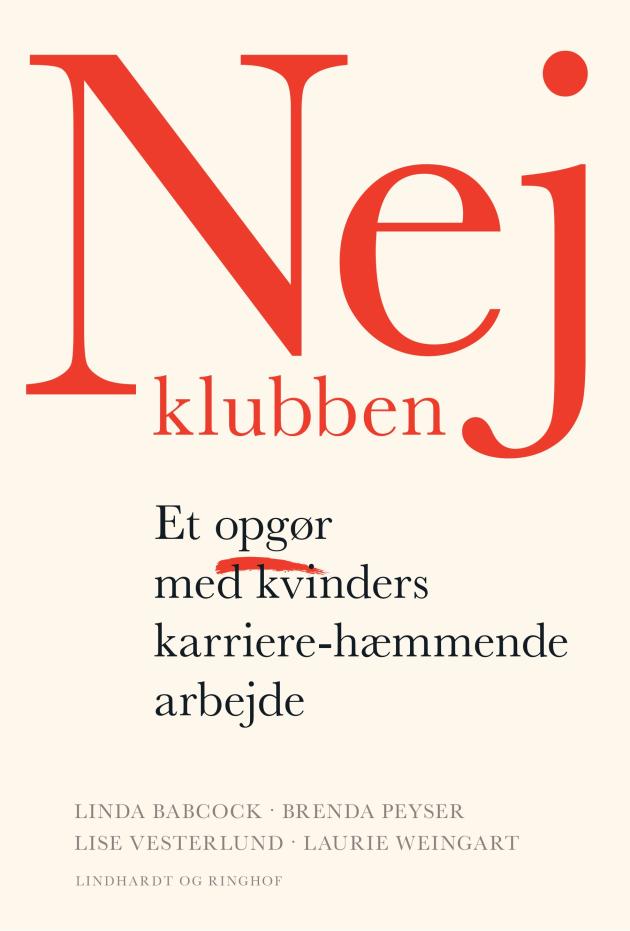The No Club: Putting a stop to women's dead-end work
Why do "career-inhibiting" crap jobs almost always end up on the desk of the female employees?
Planning the summer party, guiding interns, looking after the time-consuming client or training the new colleague. Time-consuming tasks that are important to the workplace. They do not require any special expertise, and should be able to be performed by anyone. But as a rule, they fall to women in the workplace - at the expense of women's time for their actual work and to the detriment of both their careers and the development of workplaces.

Photo: Lindhardt og Ringhof
Career-inhibiting work
The No Club was founded by Linda Babcock, Brenda Peyser, Lise Vesterlund and Laurie Weingart. In addition to having university careers as deans and professors in common, they also shared other conditions in their working lives: endless to-do lists of tasks unrelated to their actual work, which stole time from it – and which made them lag behind in relation to their male colleagues' salaries and career paths. Simply because they did not have time for their actual tasks.
The perceived difference in work tasks was the starting point for 10 years of ground-breaking research, which has now become the No Club: Putting a Stop to Women's Dead-End Work, which both documents the gender bias and comes up with suggestions for what we can do to change that.
At the talk at the Royal Danish Library, two of the authors, Lise Vesterlund and Brenda Peyser, will talk about the important changes you can make yourself as an employee, and which major changes are required from workplaces. Because the imbalance leaves women overburdened and at the same time hurts the companies, as they lose revenue, productivity and do not utilise the talents of their employees.
With hard data, personal anecdotes from all kinds of women, and innovative advice from Fortune 500 companies (an annual list that ranks 500 of America's largest companies by total revenue), this book shows us how to advance women's careers and achieve equality in the 21st Century.
Participants
Lise Vesterlund
Professor of Economics at the University of Pittsburgh and Director of the Pittsburgh Experimental Economics Laboratory and the Behavioural Economic Design Initiative.
Brenda Peyser
Brenda Peyser has held several leadership positions in business and academia, most recently at Carnegie Mellon University, where she was dean of Heinz College.
Emma Holten
Emma Holten is a feminist activist. Most recently, Holten has focussed on women's working conditions at the "Feminist Economics" lecture series across the country.





